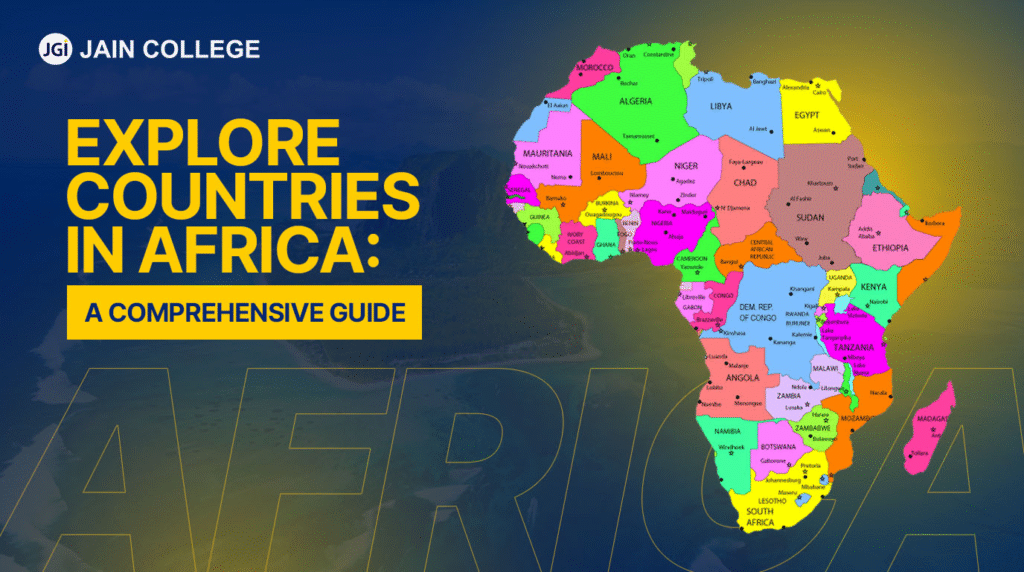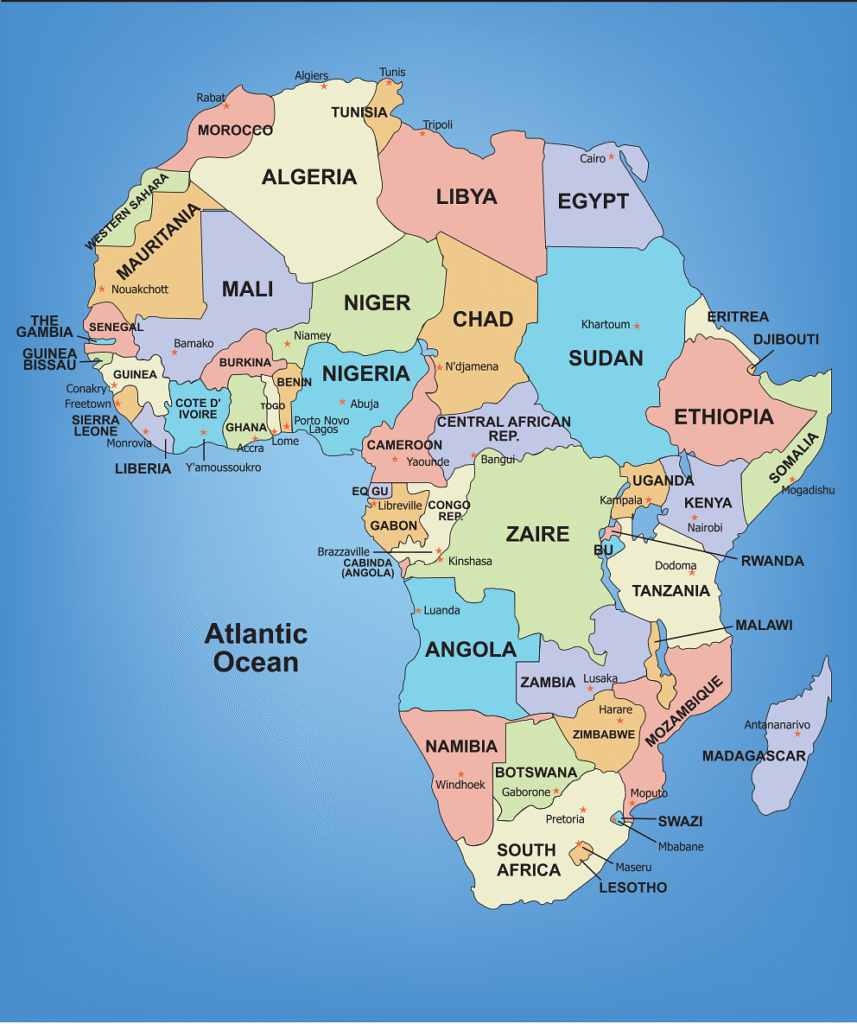“Is Africa a country?”
It’s a question that, while often innocent, sends a subtle ripple through the hearts of those who know and love the continent. It’s a question born of genuine geographical confusion, particularly prevalent in some parts of the Western world, including the United States. And while it might seem like a trivial point, this fundamental misunderstanding of Africa as a monolithic entity, rather than a vast and incredibly diverse continent, has profound implications for how we perceive, engage with, and even travel to this magnificent part of the world.
Let’s clear the air, once and for all: Africa is not a country.
It is the world’s second-largest continent, a landmass so immense it could comfortably swallow the United States, China, India, Japan, and most of Europe combined. And within its sprawling borders lie not one, not two, but 54 distinct, sovereign countries, each with its own unique history, culture, languages, cuisines, political systems, natural wonders, and challenges.
To ask “Is Africa a country?” is akin to asking “Is Europe a country?” or “Is Asia a country?” The absurdity becomes apparent when you apply the same logic to continents you’re more familiar with. Yet, for many, the mental map of Africa remains a blurry, undifferentiated mass.
This article isn’t just about correcting a geographical error; it’s about opening a window to a world of astonishing diversity, challenging ingrained misconceptions, and inviting you to see Africa not as a singular narrative, but as a vibrant mosaic of nations, people, and experiences.

The Root of the Confusion: Why Does This Misconception Persist?
Why, in an age of instant information, does this geographical confusion about Africa endure? Several factors contribute to this widespread misunderstanding:
- Limited Geographical Education: For many, particularly in school systems that prioritize domestic geography or focus on other continents, the nuances of Africa’s political map simply aren’t taught comprehensively.
- Media Portrayal: For decades, and still too often, mainstream media coverage of Africa has been selective and often negative, focusing on crises, conflicts, poverty, or wildlife. These stories are frequently presented without specifying the country, contributing to a generalized, undifferentiated image of “Africa” as a place of problems, rather than highlighting specific nations. You rarely hear of “European poverty”; it’s always “poverty in Greece” or “economic issues in Spain.” But with Africa, the country name is often dropped.
- Historical Legacy: The colonial era played a significant role in homogenizing the perception of Africa. European powers carved up the continent, often disregarding existing ethnic and cultural boundaries. Post-colonial narratives, too, sometimes inadvertently contributed to the “single story” by grouping diverse nations under broad banners.
- “Safari” as the Dominant Narrative: While undeniably magnificent, the safari experience in East or Southern Africa often becomes the sole representation of the continent, overshadowing the urban vibrancy, ancient histories, and diverse cultures found elsewhere. Even within safari narratives, the focus is often on the “wildlife,” with the country becoming a secondary detail.
- Language and Linguistics: The very word “Africa” is catchy and rolls off the tongue easily. It’s often used as a shorthand, replacing the necessary specificity of a country’s name.
This oversimplification is more than just an academic error; it has real-world consequences, from shaping foreign policy and investment decisions to influencing individual travel choices and perpetuating harmful stereotypes.
How Many Countries in Africa? The Answer is 54 (or 55!)

So, for the record: there are 54 recognized sovereign countries in Africa. The number can sometimes be quoted as 55 if one includes the Sahrawi Arab Democratic Republic (Western Sahara), a state whose sovereignty is disputed.
Think about that for a moment: 54 distinct flags, 54 national anthems, 54 governments, economies, and unique identities. This is more countries than in Europe (around 44) or South America (12).
Beyond the Numbers: Unpacking the Astonishing Diversity of Africa’s Nations
To truly grasp the vastness and richness of Africa, we must move beyond the single word and dive into the vibrant tapestry woven by its individual nations. Forget the generalized image; prepare to meet the unique personalities of Africa’s diverse regions.
North Africa: Ancient Echoes and Desert Sands
- Egypt: Home to one of the world’s oldest civilizations, Egypt is a land of timeless wonders. Think of the Pyramids of Giza (humanity’s oldest remaining wonder), the Valley of the Kings, and the life-giving Nile River. Its history stretches back millennia, infused with pharaohs, gods, and hieroglyphs. It’s predominantly Arabic-speaking and culturally distinct from sub-Saharan Africa.
- Morocco: A sensory feast of vibrant souks, imperial cities like Marrakech and Fes, and the mesmerizing Sahara Desert. Morocco is a blend of Arab, Berber, and European influences, known for its hospitality, exquisite cuisine, and intricate architecture.
- Tunisia & Algeria: Other North African gems, offering Roman ruins, Mediterranean coastlines, and distinct cultural experiences, often less traversed by mainstream tourism.
- Diversity Snapshot: Arid deserts, Mediterranean coastlines, ancient civilizations, Arabic and Berber cultures, distinct Islamic influences.
East Africa: The Safari Heartlands and Great Lakes
- Kenya: The quintessential safari destination, where the Masai Mara hosts part of the Great Migration, and the Maasai people’s vibrant culture thrives. It boasts iconic landscapes, from savannahs to snow-capped peaks (Mount Kenya), and a bustling capital in Nairobi.
- Tanzania: Home to the mighty Serengeti National Park (the stage for the Great Migration’s calving season), the stunning Ngorongoro Crater, and the iconic peak of Mount Kilimanjaro. Its Swahili coastline leads to the spice island of Zanzibar, offering pristine beaches and rich history.
- Uganda & Rwanda: These “Pearls of Africa” are synonymous with gorilla trekking, offering profound, intimate encounters with mountain gorillas in lush rainforests. They are also lands of a thousand hills, vibrant cultures, and significant conservation efforts.
- Ethiopia: A land of ancient Christian history, rock-hewn churches (Lalibela), and the dramatic landscapes of the Simien Mountains. It has a unique script and calendar, standing apart from much of the continent.
- Diversity Snapshot: Iconic wildlife, volcanic mountains, vast savannahs, Great Rift Valley lakes, Swahili culture, ancient Christian heritage, diverse ethnic groups and languages.

Southern Africa: Adventure, Modernity, and Desert Wonders
- South Africa: A “rainbow nation” of incredible diversity, boasting modern cities like Cape Town and Johannesburg, the famous Kruger National Park for Big Five safaris, stunning coastlines, and world-class wine regions. Its history is complex, marked by apartheid, but also by profound reconciliation.
- Namibia: A land of surreal beauty, from the towering red dunes of Sossusvlei to the wildlife-rich Etosha National Park and the desolate, shipwreck-strewn Skeleton Coast. It’s sparsely populated, offering a unique sense of wilderness and vast open spaces.
- Botswana: A stable democracy committed to high-value, low-impact tourism. Home to the unique Okavango Delta, a lush inland oasis offering mokoro (dugout canoe) safaris, and Chobe National Park, famed for its massive elephant herds. It epitomizes luxury, exclusive wilderness experiences.
- Zambia & Zimbabwe: Home to the thundering Victoria Falls, these countries offer exceptional safari experiences (especially walking safaris in Zambia’s South Luangwa), canoeing on the Zambezi, and rich cultural encounters.
- Diversity Snapshot: Coastal beauty, iconic mountains, vast deserts, world-class safaris, modern urban centers, distinct European and African cultural blends, rich mining histories.
West Africa: Vibrant Cultures, Music, and Coastal Histories
- Ghana: Known as one of West Africa’s most stable and welcoming nations, offering vibrant markets, historic slave castles (Elmina, Cape Coast), and a rich tradition of music and dance. It’s often seen as an excellent entry point for first-time visitors to the region.
- Nigeria: Africa’s most populous nation, a powerhouse of culture, economy, and innovation. While not a typical tourist destination, its diversity is staggering, with hundreds of ethnic groups, a booming film industry (Nollywood), and a vibrant arts scene.
- Senegal: A hub of West African culture, famous for its music (Mbalax), vibrant markets, and the historic island of Goree, a poignant reminder of the transatlantic slave trade. Dakar is a bustling, cosmopolitan capital.
- Benin & Togo: Known for their rich Voodoo traditions, historical slave routes, and unique tribal cultures.
- Diversity Snapshot: Rhythmic music, ancient kingdoms, rich colonial history (including the transatlantic slave trade), vibrant textile markets, diverse religious practices (Christianity, Islam, traditional beliefs), bustling cities, and coastal influences.
Central Africa: The Heart of the Continent
- Democratic Republic of Congo (DRC): A vast country, politically complex, but home to incredible natural wonders like the Virunga Mountains (another gorilla trekking destination) and the mighty Congo River. It’s a land of immense biodiversity and cultural richness, though often challenging for travel.
- Cameroon: Known as “Africa in miniature” due to its diverse landscapes, ranging from beaches to mountains, rainforests, and savannahs, reflecting the continent’s varied geography.
- Diversity Snapshot: Dense rainforests, great rivers, unique primates, immense biodiversity, and complex political landscapes. (Often less frequented by general tourism, but rich in specific ecological and cultural niches).

Island Nations: Tropical Paradises and Unique Blends
- Madagascar: A biodiversity hotspot, home to lemurs and unique flora found nowhere else on Earth. Its culture is a blend of African, Asian, and Arabic influences, distinct and fascinating.
- Mauritius & Seychelles: Idyllic Indian Ocean islands known for luxury resorts, pristine beaches, coral reefs, and volcanic landscapes. They offer a tranquil escape with a blend of African, Indian, European, and Creole cultures.
- Cape Verde: An archipelago off West Africa, with a unique Creole culture, volcanic landscapes, and a vibrant music scene.
- Diversity Snapshot: Unique ecosystems, pristine beaches, volcanic islands, diverse Creole cultures, and a focus on relaxation and marine activities.
Why This Matters: The Consequences of Geographical Confusion
The “Africa is a country” misconception isn’t just a benign error; it has tangible, often negative, consequences:
- Perpetuating Stereotypes: When Africa is treated as a single entity, it’s easier to apply a single, often negative, stereotype (e.g., “Africa is poor,” “Africa is dangerous,” “Africa needs saving”). This erases the vibrant successes, the burgeoning economies, the technological innovations, and the everyday lives of hundreds of millions of people across diverse nations.
- Misguided Policy and Aid: International aid organizations, governments, and investors can fall into the trap of applying blanket policies or approaches to “Africa,” rather than tailoring solutions to the specific needs and contexts of individual countries. What works in Botswana might be entirely inappropriate for Somalia.
- Missing Travel Opportunities: Fear of “Africa” as a dangerous place (due to conflict in one specific, often remote, region) prevents many from exploring remarkably safe and welcoming countries like Ghana, Rwanda, or Botswana. It’s like avoiding all of Europe because of an issue in one specific corner.
- Disrespect and Erasure: Most importantly, it’s profoundly disrespectful to the unique identities, sovereignty, and rich cultures of 54 nations. Imagine being told your country doesn’t exist, that it’s merely a part of some larger, undifferentiated blob.

Becoming Geographically Literate: How We Can Learn and Grow
Correcting this confusion is a simple yet powerful step towards a more informed and respectful global perspective. Here’s how we can all contribute:
- Look at a Map (A Real One!): Seriously, spend time with a detailed map of Africa. Note the vastness, the distinct borders, the names of the countries. Use tools like “The True Size Of…” to overlay Africa onto other continents to grasp its true scale.
- Diversify Your Information Sources: Don’t rely solely on mainstream news headlines. Seek out African news outlets, documentaries made by African filmmakers, books by African authors, and travel blogs focused on specific countries.
- Be Specific in Language: Consciously make an effort to refer to specific countries. Instead of “Africa has a problem with X,” say “Country Y in Africa is facing challenges with X.” Instead of “I want to go to Africa,” say “I want to go on a safari in Tanzania” or “I want to explore the culture of Ghana.”
- Engage with African Diaspora Communities: Many cities in the US and Europe have vibrant African communities. Engage with them, learn from their diverse perspectives, and celebrate their distinct national identities.
- Travel Responsibly (When You Can): If you’re fortunate enough to visit, travel with reputable operators who prioritize local employment and sustainable practices. Learn about the country you’re visiting before you arrive, and engage respectfully with its people and culture.
The True Spirit of Africa: An Invitation to Explore
The journey of understanding Africa is a rewarding one. It’s a journey from a generalized, often stereotyped image to a vibrant, nuanced reality. It’s about replacing a single story with 54 incredibly rich, complex, and distinct narratives.
From the ancient pyramids of Egypt that whisper tales of pharaohs, to the thundering Victoria Falls shared by Zambia and Zimbabwe; from the bustling markets of Ghana that pulse with music, to the serene Okavango Delta in Botswana where elephants roam free; from the dramatic dunes of Namibia that stretch to the horizon, to the unique lemurs of Madagascar; from the urban sophistication of Cape Town to the spiritual heights of Mount Kilimanjaro – Africa is an entire world within a continent.
So, the next time you hear someone ask “Is Africa a country?” or find yourself thinking about it as a singular place, remember the 54 flags, the countless languages, the diverse landscapes, and the billions of individual stories that collectively form the boundless, magnificent tapestry that is the African continent. Your journey of understanding, and perhaps even of travel, has just begun.
